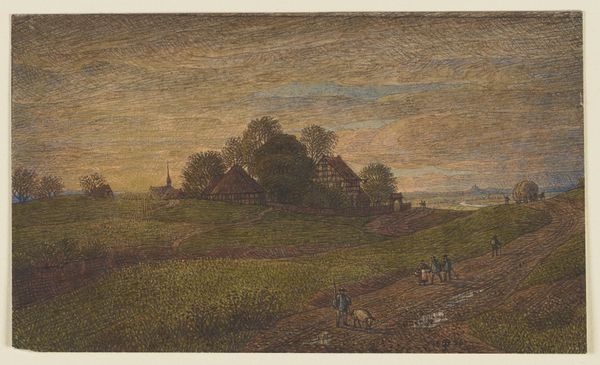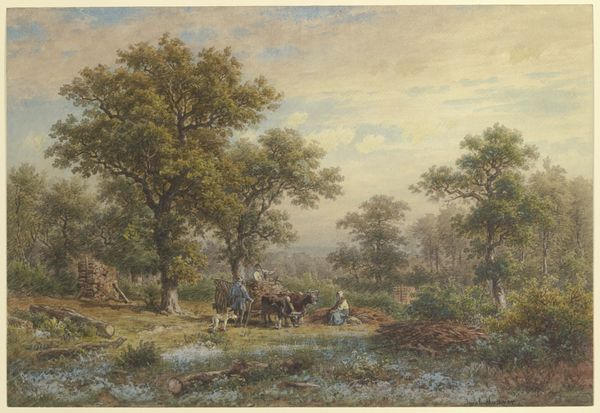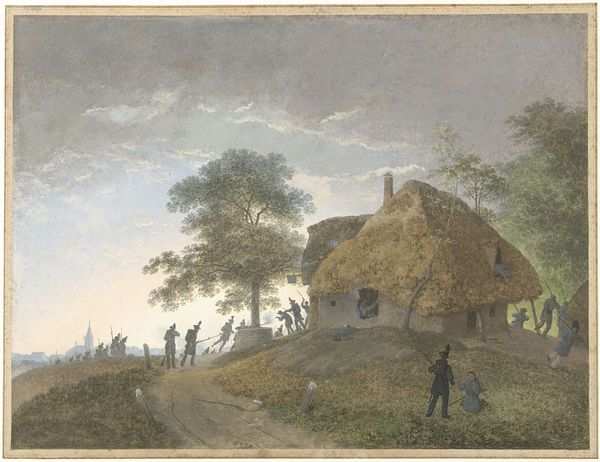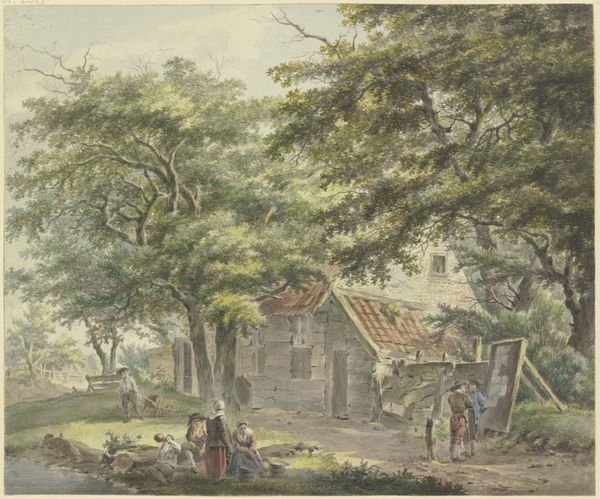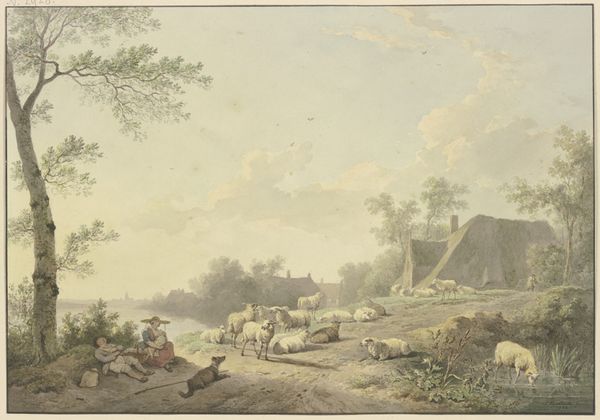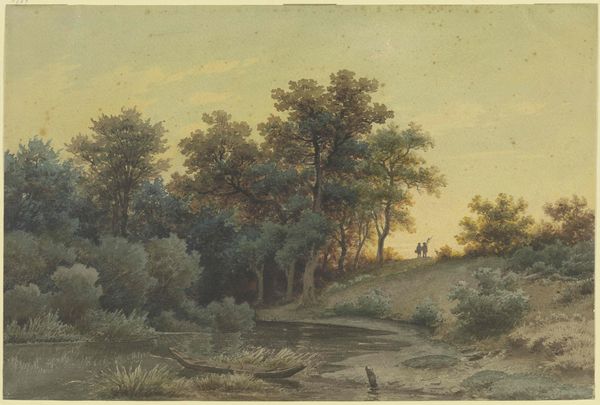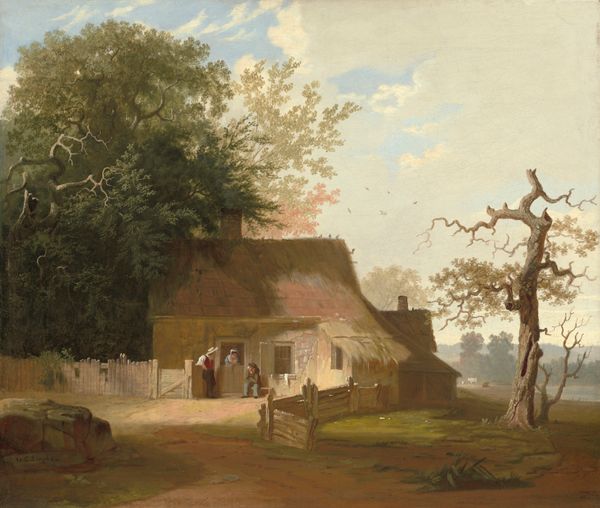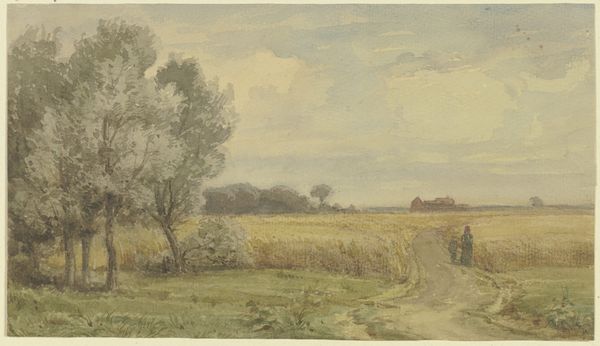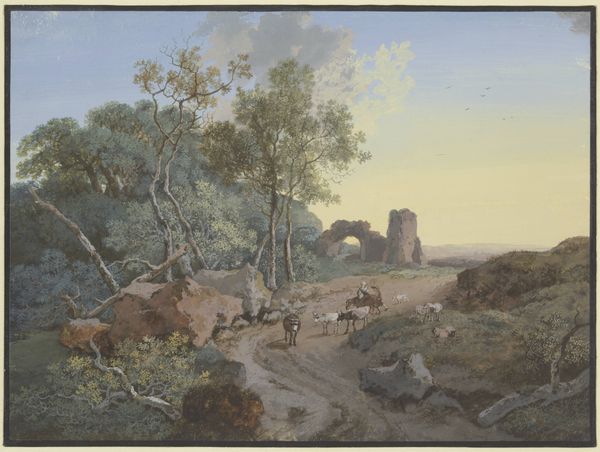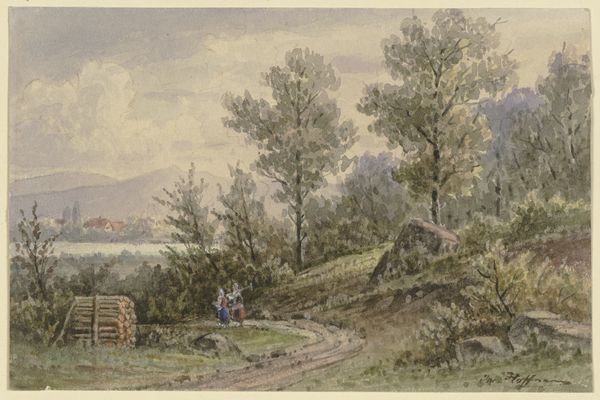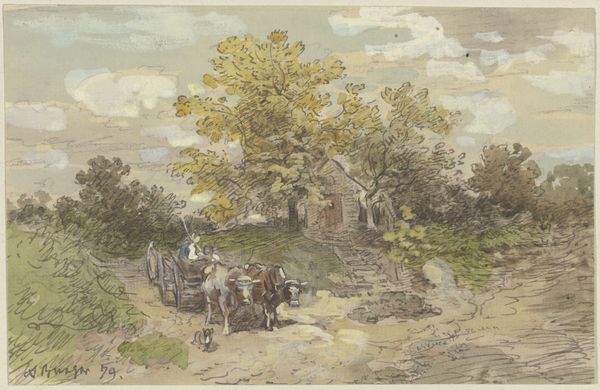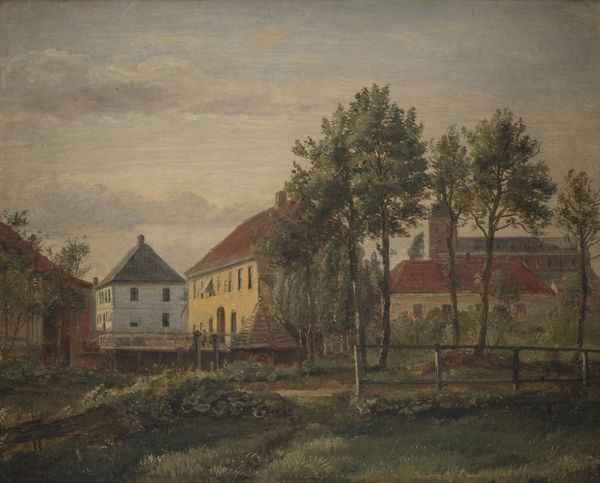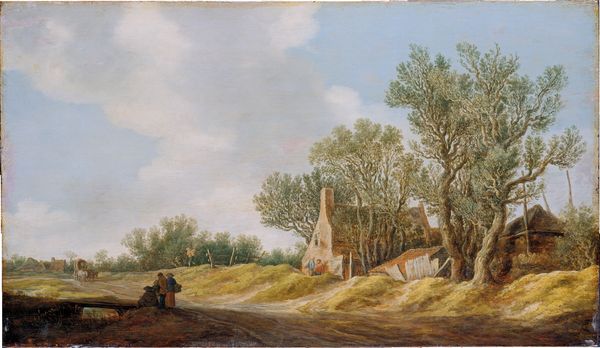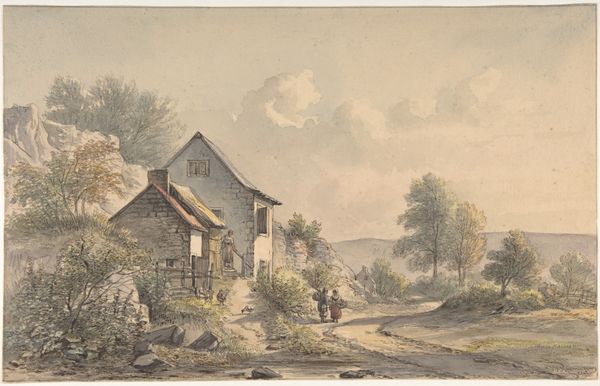
Bauernhaus am Weg unter Bäumen, Staffage von vielen Figuren und weidendem Vieh
0:00
0:00
drawing, tempera, plein-air, watercolor
#
drawing
#
tempera
#
plein-air
#
landscape
#
figuration
#
watercolor
#
coloured pencil
#
romanticism
#
watercolour illustration
#
genre-painting
Copyright: Public Domain
Johann Georg Wagner made this watercolor of a farmhouse on a road with trees, figures, and grazing cattle sometime in the late 18th century. Scenes of rural life like this became popular during the Enlightenment. The painting depicts a humble cottage set in a harmonious landscape and populated by peasants going about their daily lives. Wagner here gives visual form to a social ideology - the idea that agricultural life is natural and good and that the traditional social hierarchy is part of the natural order. This view served the interests of the land-owning aristocracy who dominated much of 18th-century Europe, especially in the German-speaking lands. Wagner's painting isn't merely a neutral record of what he saw. Rather, it's a constructed image that reflects particular beliefs about the ideal social order. By studying the social and institutional history of art, we can learn how art has been used to promote certain ideologies. Researching how institutions like the Städel Museum have collected and displayed art helps us understand how these paintings acquired their current meanings.
Comments
No comments
Be the first to comment and join the conversation on the ultimate creative platform.
